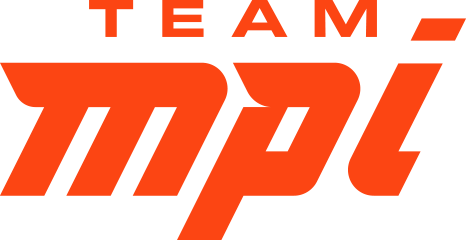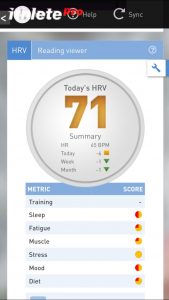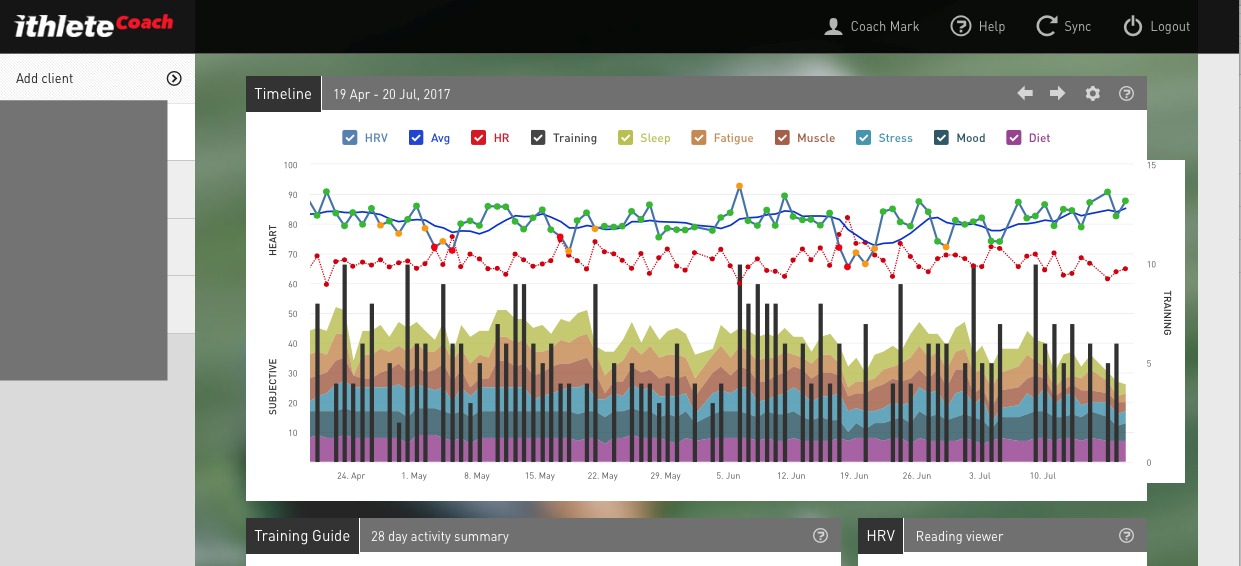
by Mark Sortino, Team MPI
For this article, I’d thought I would write directly to both athletes and coaches on the value of using ithlete Pro and ithlete Coach App.
The Challenges of Remote Monitoring
At Team MPI, we work for our athletes and provide unlimited communication. Some athletes have very tight schedules with minimal time to train while others are full time professional athletes and have unlimited time. In all cases, the communication between athlete and coach is crucial in both providing proper training and executing those training sessions correctly. Most Team MPI athletes are remote coached, meaning the coach does not meet with the athlete in personal but rather provides their training via an online program, we use www.FinalSurge.com, along with emails, texts, phone and video communications. Because of this, it’s absolutely essential for the coach to understand how the athlete’s body is absorbing the training that they write. This can be done in three ways:
- Analyzing each training session’s data from the athlete (swim, bike, run, strength, etc. – did they achieve the specific goals within that training session?)
- Receiving feedback from the athlete on each session via notes or other communication methods on how they felt (RPE 1-10, how did they feel during the session, etc.)
- A separate communication from the athlete to the coach providing information on their overall fatigue level.
The first method, “reading the data” relies on the athlete having additional equipment to record their training data but does not give information on effort level. Still, coaches can see trends between sessions with decreasing power and/or decreasing/increasing heart rate along with intervals made in the pool to identify if there is an overall onset of fatigue.
The second method requires an athlete to be very self-aware. For beginners, it’s extremely hard to determine the difference between being too tired and sore from overtraining or under recovering and just regular, natural fatigue and absorption of training. For some experienced athletes, it may feel like quitting if they say anything to the coach that may result in a rest day or modification of their next session, so they tend to ignore signs that a rest is needed and provide glowingly false information to the coach.
The third method requires an athlete to provide frequent feedback in any communication form on how they are feeling overall. The challenge with this method includes those in the second method but also typically fails to include an overall picture of what the athlete is going through outside of training. What did they eat? Did they stay up late? Is there extra family or work stress? How did they sleep? It is easy to imagine that this would have to be much more than a text, or short email or call.
HRV: The practical alternative
This is where ithlete Pro come in. For the athlete, conducting an HRV reading and self-assessing each and every morning at the same time provides numerous benefits in overall awareness of the athlete’s health. First, taking a reading of the athlete’s heart for one minute provides concrete data that can then be compared against the athlete’s historical readings to determine what, if any, change has occurred. As is well documented on www.myithlete.com, it’s not just the HRV number and the Resting Heartrate number, but the overall trend as it relates to that particular athlete.
 Second, requiring the athlete to self-asses on how they feel both at that moment and reflect on their actions from the previous day is essential to helping them build an overall picture of their fatigue state. How was the training over the last 24 hours? How well did you sleep? Are you feeling tired? Do you have any muscle soreness? Are you irritable or in a good mood? How well did you eat over the last day?
Second, requiring the athlete to self-asses on how they feel both at that moment and reflect on their actions from the previous day is essential to helping them build an overall picture of their fatigue state. How was the training over the last 24 hours? How well did you sleep? Are you feeling tired? Do you have any muscle soreness? Are you irritable or in a good mood? How well did you eat over the last day?
All this gives an opportunity for the athlete to both objectively and subjectively assess on how they are – separate from their individual training sessions. It’s quick education for the beginner athlete and a legitimate reason other than weakness for the Type A athlete who wants 100% completion on everything to modify their training. It just works, and it’s been working for all the athletes Team MPI works for who use it.
For the coach with the ithlete Coach App, checking in every morning and viewing the athletes’ readings, self-assessment scores and comments are a tremendous advantage and gives unique insight into the overall wellbeing of the athletes. For me, I’ve often, after reading the morning results of an athlete, texted or called that athlete to tell them to take the day off or adjust their training plan. The ithlete Coach App allows me to see all the athletes I work for on the left and cycle through each one individually. I also know if they’ve skipped it that day.

What the athletes say
Below are comments of one athlete I work for on the value of the ithlete Pro App:
- “It helps foster communication between you and me about how my body is really feeling following a tough training session or stressful day/week (or when I could be getting sick)”
- “It helps me figure out whether I’m getting sick or if it’s allergies (or maybe both at the same time sometimes) and when it’s smart to take a day off rather than push through when my body just isn’t feeling right”
- “I feel less guilty when I need to take a day off”
- “Even though I got that pesky cold recently, I went from January to June with no problems, which is huge after all the illness last year. I think this is due to many factors (reset, shakeo, etc), but using ithlete is definitely one of the tools we’ve used to stay ahead of getting sick”
As for my thoughts, well, I wake up, get coffee and open my ithlete Coach App first thing every morning of every day. It’s a great tool for us at Team MPI, and I know a potential great tool for many athletes and coaches out there.
Learn more about the free ithlete Coach App
Mark Sortino
 Mark Sortino is a USA Triathlon Level III Coach, USA Cycling Level II Coach, F.I.S.T. certified bike fitter and certified USAT Race Director who is also the co-founder and CEO of Team MPI. Mark has been the Head Coach of Team USA Paratriathlon since 2012 and has coached Paralympic Triathletes and Cyclist, Ironman 70.3 and Ironman World Championship qualifiers along with National and World Champion ITU Paratriathletes. Mark is also a US Veteran having served 20 years in the US Navy as a Naval Flight Officer and is graduate of the US Naval Academy. Mark can be reached at mark@teamMPI.com. Find out more at www.TeamMPI.com.
Mark Sortino is a USA Triathlon Level III Coach, USA Cycling Level II Coach, F.I.S.T. certified bike fitter and certified USAT Race Director who is also the co-founder and CEO of Team MPI. Mark has been the Head Coach of Team USA Paratriathlon since 2012 and has coached Paralympic Triathletes and Cyclist, Ironman 70.3 and Ironman World Championship qualifiers along with National and World Champion ITU Paratriathletes. Mark is also a US Veteran having served 20 years in the US Navy as a Naval Flight Officer and is graduate of the US Naval Academy. Mark can be reached at mark@teamMPI.com. Find out more at www.TeamMPI.com.
